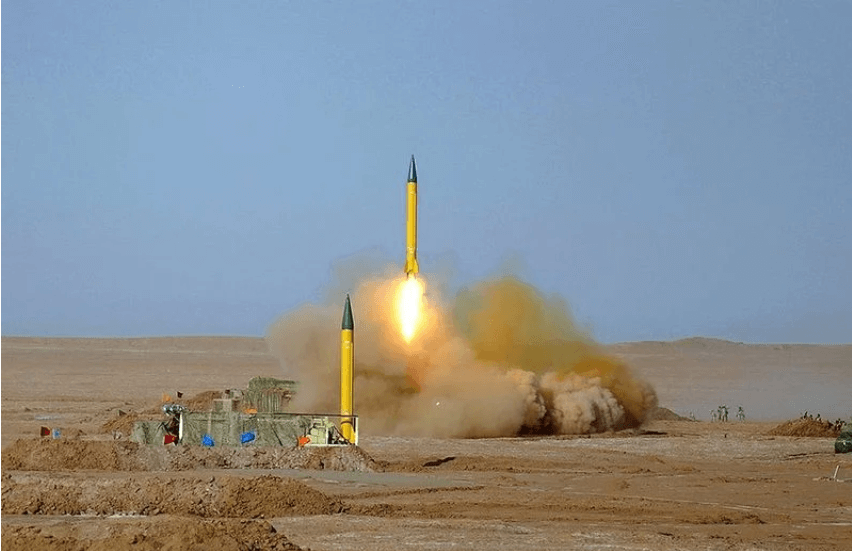Two Telegram channels linked with the Islamic Revolutionary Guards Corps (IRGC) have threatened to nuke Israel and the United States (US) if they attack Iran. The statements follow Israel’s pledge to bomb Iran’s nuclear facilities, particularly Fordow and Natanz, if Tehran continues to accelerate its nuclear programme.
Bisimchi Media said on Saturday that Iran will manufacture a nuclear weapon in the “shortest possible time” if its territorial integrity is violated. It added that the nuclear warheads would be attached to Iran’s ballistic missiles. The media outlet warned that the missiles have the capability of reaching the US and turning New York into “hellish ruins.”
In the scenario of either Natanz or Fordow being attacked, Iran will immediately assume a war footing and begin a ‘nuclear breakout project.’ Similarly, the Sepah e-Qods channels noted that in the event of an Israeli/US attack, the country could “immediately return to the EMAD/AMAD project.
EMAD was a nuclear weapons project launched by the former head of Iran’s nuclear programme, Mohsen Fakhrizadeh, in 1989. According to the International Atomic Energy Agency (IAEA), Iran halted the project in 2003. Fakhrizadeh was assassinated by Israeli agents in Iran in November 2020.
It is possible that the IRGC-affiliated channels made the statement following US President Joe Biden’s comments that the US would use force as a last resort if Tehran continued to accelerate its nuclear programme. During a visit to Israel last month, Biden said he would not allow Iran to manufacture a nuclear weapon at any cost. Furthermore, he signed a joint agreement with Israeli Prime Minister Yair Lapid to work together to prevent Iran from acquiring nuclear weapons.
#BREAKING-#Iran #IRGC Telegram channel threatens to produce atomic war head for missiles: "Iran can immediately return to Emad project and build an #ATOM bomb, if Natanz facilities are attacked". pic.twitter.com/4ug4Jd9k18
— BenSabti (@BeniSabti) July 30, 2022
Israel has for years warned that Iran is building a nuclear weapon and could launch airstrikes against Iran’s nuclear facilities to prevent a nuclear Iran. Israel views a nuclear Iran as an existential threat due to threats by Iranian leaders to “annihilate” Israel.
Israel has also opposed the 2015 nuclear deal, also known as the Joint Comprehensive Plan of Action (JCPOA), and lobbied the US and the European Union (EU) against reviving the deal, arguing that it would allow Iran more time to accelerate its nuclear programme.
Iran recently took a series of measures to ramp up its nuclear programme, including installing advanced centrifuges, shutting down surveillance cameras, and enriching uranium up to 60%, following the adoption of a US-sponsored resolution by the IAEA criticising Tehran for failing to disclose its nuclear activities.
Moreover, the IAEA has said that installing advanced centrifuges like the IR-6 machines would enable Iran to ramp up uranium enrichment to 90%, which is considered weapons-grade. An IR-6 centrifuge spins uranium ten times faster than other centrifuges. The move could allow Iran to quickly add to its stockpile of enriched uranium, which the IAEA says is sufficient to produce a nuclear weapon.
Iran has repeatedly claimed that its nuclear programme is peaceful and meant for scientific purposes. In fact, President Ebrahim Raisi said in April that Iran has inherent rights like every other country to pursue a peaceful nuclear programme and the West’s non-acceptance of Iran’s nuclear programme would not stop Tehran from pursuing its rights.

